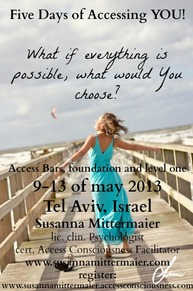|
What inspired you to study Arabic? A family connection? A fascination with the language's complexity and beauty? A work requirement? Or an interest in the conflict in the Middle East and possible a desire to contribute to peace? Whatever your motivation, studying Arabic probably brought you closer to the ongoing conflict than most other people living outside the region. I am guessing this because that's what happened to me. In 1995, a quirk of fate took me to Egypt and Syria to study Arabic for four years. I had spent the previous decade studying and working in Japan and knew almost nothing about the Middle East. The only thing I did know was that the region seemed to always be at war, but I didn't know why. So I thought I'd pick the brains of an Egyptian diplomat in Canberra over lunch. I began our lunch with "When and how did the fighting start?" He smiled and began "About 2000 years ago...." then went on to detail who did what, when, where, and why, and then who retaliated. And so on for the full lunch hour. The complete chronicles of war in the Middle East. It seemed strange that there had been no change in the situation for so long, particularly when I got to know a wide range of kind, educated and caring people from various countries, cultures and religions in the region. What was preventing change? After another quirk of fate took me to Korea for 12 years, I saw the phenomenon again. Korea, like the Middle East, is another world 'hot spot' with similar deeply entrained conflict, first with its neighbours Japan and China and since 1953 with each other. Today, Korea remains the world's most famous divided country, most recently again in a 'state of war'. What I began to see was that people were simply stuck in a point of view, so much so that they were willing to die for the rightness of this point of view. They would rather be right (and at war) than free. As I looked around I saw this was how most people functioned: trapped in the polarity of right and wrong. And yet at the same time, as I travelled the world, I also saw how different cultures sometimes held polar opposite points of view to be either right/wrong, good/bad. What I came to understand was that right and wrong were simply "interesting points of view." As Shakespeare puts it elegantly in Hamlet "there is nothing either good or bad, but thinking makes it so." How likely is conflict resolution if somewhere, someone does not change something? According to Einstein the definition of insanity is doing the same thing over and over and expecting a different result. Einstein also considered the only constant to be change. So what if conflict resolution -- be it be between families, nations or with ourselves about studying a language -- were as simple as changing our thinking? Can you ever change anyone else? No. You can only be the invitation to change. The one thing you can change is you. So my invitation is this. Ask yourself, whatever your motivation for studying Arabic, what would you like to change about it? What if everything were possible? What would you choose? The same? Or something different? And of course when someone chooses not to change, they are not wrong. It is simply a matter of choice.  What else is possible with you, Arabic & the Middle East? Find out about five days of creating greater possibilities - click here. Facilitated by Susanna Mittermaier, lic. clinical psychologist Founder, PRAGMATIC Psychology™ - Practical Tools for a Better World Certified Access Consciousness® Facilitator +46 708 26 94 38 www.susannamittermaier.com Workshops also held around the world in more than 45 countries, including Abu Dhabi and Dubai.
1 Comment
|
